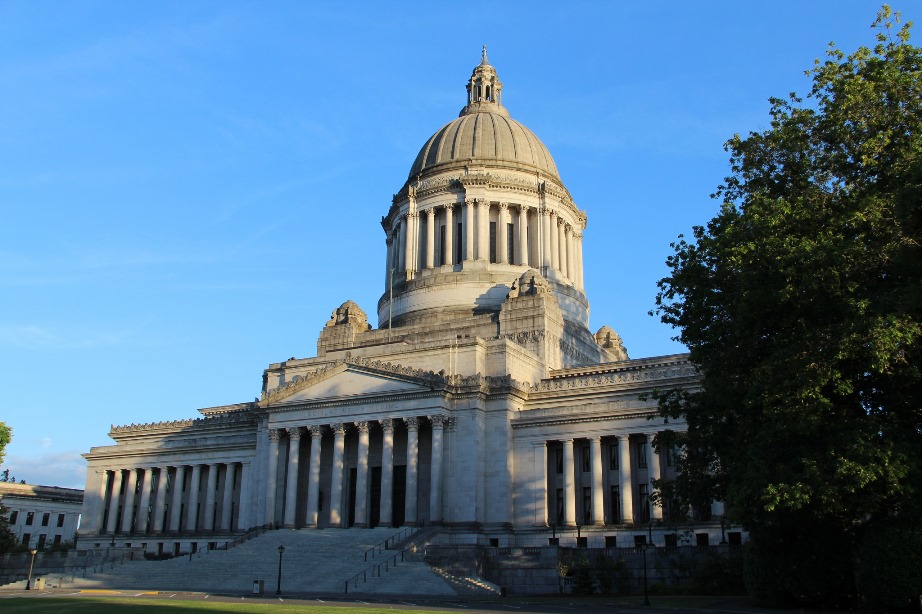Washington Policy Landscape for Natural Gas
This piece is written in partnership with the Institute for Energy Economics & Financial Analysis and Climate Solutions
The political and policy landscape on the future of natural gas has shifted dramatically in Washington over the last two years. For decades, state policy has been designed to increase the share of home heating provided through natural gas, principally because end use combustion of natural gas was more efficient and a lower source of emissions than using coal and gas to produce electricity for the same purpose. In 2019, the Legislature eliminated this consideration through the adoption of the Clean Energy Transformation Act, which requires the elimination of coal from Washington’s electricity supply by 2025, greenhouse gas neutral power by 2030, and zero carbon electricity by 2045. Since then, state and local governments have taken a number of deliberate steps to cap emissions and disincentivize the use of natural gas.
Washington state moves against natural gas
In the wake of the 2021 State Energy Strategy, which laid out an economy-wide decarbonization pathway including ending new gas connections along with electrification of most existing commercial and residential buildings by midcentury, the Legislature undertook a variety of robust policy initiatives intended to implement the framework. Most significant of all of these is the Climate Commitment Act (CCA), a cap and trade system enacted in the 2021 legislative session that requires steady reductions in greenhouse gas emissions in the state. CCA is the second economy-wide cap and trade program adopted nationally after California, but unlike its predecessor is much more stringent and contains a number of specific provisions to slow and then decrease the growth of natural gas use.
Unlike California’s cap system, Washington’s is authorized through 2055 and requires a 95 percent reduction in emissions from covered sectors, starting with annual cuts of approximately 7 percent through 2030. The total cap for all covered sectors will be approximately 3 million tons of emissions; the current level of residential and commercial gas use in the state amounts to approximately 8 million tons. To reduce gas emissions, the sector will have no choice but to reduce gas use to remain in compliance with the law. And unlike California’s law, which funds a climate rebate to all natural gas customers and has, in turn, reduced the financial incentive to leave the gas system, Washington prohibits this type of incentive for any new customer. New customers must pay the full freight of their carbon costs immediately in 2023. The costs for new gas customers represent an overnight increase of approximately 15 percent in the current allowance price, and climb steadily in subsequent years. This creates a substantial disincentive to build with natural gas. While existing customers will receive an initial subsidy, this amount will drastically reduce in the following years.
In the same session, the Legislature passed SB 5295 which amended a provision that has been in state law since the 1980s, making it the policy of the state to “maintain and advance” the natural gas system. The Legislature replaced this provision with direction to provide energy services in general. This provision has repeatedly been referred to by gas utilities to defend generous pro-gas policies in regulatory settings. In the wake of the policy change, the Utilities and Transportation Commission in October prohibited the continued use of the perpetual net present value calculation for gas utility line extension allowances. This single change will slash the incentive provided by gas utilities in half; Puget Sound Energy’s line extension incentive, for example, will go from over $4000 per new connection to around $2000. In combination with the increased cost of service driven by carbon pricing, new connections to the natural gas system are substantially less appealing. The Commission has indicated that it will continue to examine the reasonableness of allowing line extension incentives at all.
The Legislature also ordered the opening of a “Future of Gas” docket at the Utilities and Transportation Commission, to evaluate pathways for decarbonizing the sector in compliance with state targets. Through a budget proviso, lawmakers also appropriated $10 million for electrification projects. And finally, the State Building Code Council is considering amendments to the 2021 commercial energy code that would require electric heat pumps for space and water heating. The amendments will be open for public comment in late 2021, with an expected final code in spring 2022. The state policy direction is clear.
Local government takes up the call
The last year has also seen a flurry of actions at the local level to discourage or prohibit the continued adoption of natural gas. Most prominently, the City of Seattle, host to around a quarter of Puget Sound Energy’s natural gas customers, enacted new energy codes that prohibit new multifamily and commercial buildings from using natural gas for space and water heating, the bulk of a building’s gas use. King County, the state’s most populous county, and the cities of Shoreline and Bellingham are following suit with similar energy code policies likely to be adopted before the end of the year. Seattle has announced it is developing a carbon-based Building Performance Standard to complement state efficiency requirements that will require elimination of existing gas use in mid- and large-sized buildings, going beyond just slowing load growth and instead leading to gas load reductions over time. Similar ideas for phasing out gas use are gaining momentum across the state including in Olympia, Tacoma, and Bellingham.
An industry in decline
The reality is that policy action against natural gas is steadily increasing the cost of the fuel, making it less and less cost competitive with Washington’s cheap and clean electricity. New regulations are starting to preclude the continued expansion that gas utilities count on to keep pricing stable. Over the coming years, more local government action will be enacted into law and further state policy and regulatory practice will erode the basic incentive to expand fossil fuel use and increase the barriers to continued gas use.


